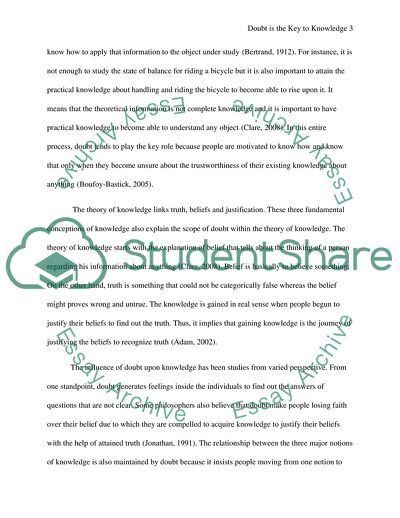Cite this document
(Doubt is the Key to Knowledge Assignment Example | Topics and Well Written Essays - 1250 words, n.d.)
Doubt is the Key to Knowledge Assignment Example | Topics and Well Written Essays - 1250 words. https://studentshare.org/sociology/1738874-doubt-is-the-key-to-knowledge-persian-proverb-to-what-extent-is-this-true-in-two-areas-of-knowledge
Doubt is the Key to Knowledge Assignment Example | Topics and Well Written Essays - 1250 words. https://studentshare.org/sociology/1738874-doubt-is-the-key-to-knowledge-persian-proverb-to-what-extent-is-this-true-in-two-areas-of-knowledge
(Doubt Is the Key to Knowledge Assignment Example | Topics and Well Written Essays - 1250 Words)
Doubt Is the Key to Knowledge Assignment Example | Topics and Well Written Essays - 1250 Words. https://studentshare.org/sociology/1738874-doubt-is-the-key-to-knowledge-persian-proverb-to-what-extent-is-this-true-in-two-areas-of-knowledge.
Doubt Is the Key to Knowledge Assignment Example | Topics and Well Written Essays - 1250 Words. https://studentshare.org/sociology/1738874-doubt-is-the-key-to-knowledge-persian-proverb-to-what-extent-is-this-true-in-two-areas-of-knowledge.
“Doubt Is the Key to Knowledge Assignment Example | Topics and Well Written Essays - 1250 Words”. https://studentshare.org/sociology/1738874-doubt-is-the-key-to-knowledge-persian-proverb-to-what-extent-is-this-true-in-two-areas-of-knowledge.


